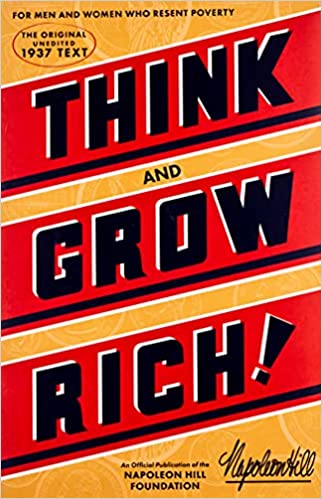
What Gratitude Really Means?
Expressing daily gratitude has a lot more to do with just saying thank you. People interpret gratitude differently, as it could be in showing appreciation, looking at the bright side of things after a setback, thanking God, or someone in your life, being present-oriented, or even not taking things for granted. Gratitude expression is, however, broader than that as it focuses on the present moment brought lived accompanied by relishing the good moments that have happened to your life and, as a result, birthed your present.
An attitude of gratitude has been said to have many benefits, especially in creating a sense of appreciation for small and big things that happen in life. Creating a conscious mindset or habit rooted in expressing thankfulness changes you and how you view the environment around you. Gratitude is a powerful tool to bring back calm in your life and also influence your growth and of things or those around you.
Why Is Gratitude So Powerful?
Gratitude has been psychologically linked to greater happiness that you experience. Expressing daily gratitude in life shifts your thinking into a more positive angle where you are more likely to appreciate situations. The greater power and happiness are brought about by embracing the small things we do in our lives. It involves more than the happy feelings you get in your life but also the situations or outcomes of things, whether you expected them to be in a certain way or not.
Gratitude brings a certain lightness to your life and thus gives you an opportunity to be consistently appreciative and happy despite circumstances. The greater power sourced from gratitude is in the art of being thankful and joyful living. Gratitude, as previously mentioned, will shift your thinking and help you experience life from a beautiful angle filled with solid relationships with others and consistent improvement in whatever you do.
What Are The 3 Types Of Gratitude?
You need to note that the highest level of daily gratitude is developed over time. It is considered both an attitude and also a habit of mind. Developing a habit of gratitude is a compelling quality that a person can take in bringing forth happiness. Types of gratitude include:
-
Affective Trait
This type of gratitude mainly involves the tendency to respond positively to specified situations. Individuals with the affective trait of gratitude will constantly view conditions from a grateful disposition, thus appreciating the different problems they are presented with. Practical well-being is more focused on the positive routines that remind you of the elements that bring positivity in life. People with the affective trait will notice and focus on valuing or appreciating what they and others have. They bring back mindful awareness of the present and are likely to respond positively to situations around them.
-
A Mood
This type of gratitude is associated with fluctuations in gratitude expression and feeling for a certain period. Sometimes, individuals may experience gratitude in short durations, which also depends on the event in which it happened. The mood can be defined as an intermediate level of appreciation as it fluctuates across different periods—gratitude fluctuation across the different vibrational energies in our lives. Feelings of sadness or sickness greatly influence how we perceive gratitude and our chances of appreciating what we see or experience in our lives.
-
An Emotion
Gratitude as an emotion is mainly temporary and relies on the event or action. This type of gratitude relies heavily on the effort to express or feel these feelings of appreciation. Gratitude expressed in emotion can be seen, especially after someone is awarded or presented with a gift by someone else. Often individuals will express their appreciation and gratitude for this act, but it is short-lived. When the gift or favor is no longer present, the feelings of gratitude are not shown or expressed. However, even with the short period shown, acknowledgment of the act is enough to show others kindness.
Gratitude as an emotion is mainly temporary and relies on the event or action. This type of gratitude relies heavily on the effort to express or feel these feelings of appreciation. Gratitude expressed in emotion can be seen, especially after someone is awarded or presented with a gift by someone else. Often individuals will express their appreciation and gratitude for this act, but it is short-lived. When the gift or favor is no longer present, the feelings of gratitude are not shown or expressed. However, even with the short period shown, acknowledgment of the act is enough to show others kindness.

What Are The Benefits Of Gratitude
These can be categorized into individual and social benefits one gets through practicing gratitude. Individual benefits include:
-
Gratitude opens the door to more relationships
Gratitude helps in building new relationships and also strengthening existing relationships. When we express gratitude to the people around us, we become more positive toward them, which increases our comfort levels while interacting with them, effectively boosting the relationship. This is especially apparent in romantic relationships. Moreover, expressing gratitude helps to motivate those who receive gratitude, improving their performance. For example, when managers show gratitude to their employees, the workplace relationship improves, leading to improved performance.
-
Gratitude improves physical health
Grateful people are more likely to have better physical health than their counterparts. They experience fewer aches and pains and practice a healthier lifestyle. People who practice daily gratitude often engage in health-boosting exercises such as regular workouts, eating healthy and balanced meals, and going for check-ups to ensure their health is up to par. These actions improve the longevity of their lives.
-
Gratitude improves psychological health
Regularly practicing gratitude helps reduce feelings of anxiety and can help manage depression symptoms. Expressing gratitude fosters positivity which is essential in improving our mood. Whether you are giving or receiving gratitude, you tend to become happier. In addition to becoming happier, gratitude makes us calmer and more comfortable, vital traits for fighting anxiety and depression. When expressed regularly, gratitude can substitute anxiety and depression medication.
-
Gratitude enhances empathy and reduces aggression
Being grateful helps to eliminate toxic feelings such as envy, regret and frustration. Instead, practicing gratitude strengthens positive emotions such as happiness and empathy. Being empathetic and happy dissuades us from partaking in aggressive tendencies as we understand that they can cause harm to others and ourselves.
-
Grateful people sleep better
Practicing gratitude teaches us to appreciate the things we have and others. In doing this, we become happy and content, which enables us to go to bed unburdened. When our mind is calm and relaxed, we tend to have better sleep quality. Additionally, participating in grateful exercises such as meditation and journaling helps us sleep better.
-
Gratitude improves self-esteem
Self-esteem describes our self-image and how we think about ourselves. Being grateful allows us to appreciate our value and makes us feel better about ourselves and our circumstances. Moreover, practicing gratitude eliminates comparison among people, which helps reduce feelings of inadequacy, effectively improving self-esteem.
-
Gratitude increases mental strength
Our mental strength is determined by various factors such as sleep quality, mental clarity and overall mood. Practicing gratitude enhances our sleep quality, boosts our mood and clears our mind, factors that help increase our mental strength. Moreover, in learning to appreciate what we have, even during the worst circumstances, such as serious ailments, debt, and violent attacks, we become resilient, an essential attribute of mental strength.
There are numerous benefits of gratitude at both the individual and societal levels. At the individual level, practicing gratitude enhances our physical and psychological health, makes us happier, builds our self-esteem and makes us more resilient. At the societal level, practicing gratitude boosts happiness, reduces aggression in the community and strengthens relationships. There are no downsides to expressing gratitude. Therefore, we should all strive to practice gratitude daily to improve the quality of our lives.
How To Practice Gratitude Daily
Learning how to express gratitude from regularly practicing gratitude, especially daily, are endless. Gradual expression of gratitude has more positive impacts and contributes to your daily growth. Some examples of expressing gratitude you can do daily to help you learn how to be grateful include:
-
Keep a gratitude journal
Starting a Gratitude Journel is a self-help technique that is effective in helping you view emotions and events in your memories from a different perspective. Reading your thoughts can also help you see situations when struggling to be positive on other occasions. Thanking people around us. Expressing gratitude to those around us gives us better connection with people around us. Meaningful interactions can positively impact our relationships and creating thoughtful connections.
-
Practice Mindfulness Meditation.
This helps in the growth of the connection we have with ourselves and also with others. It promotes acceptance and forgiveness within ourselves and others thus promoting gratitude. Meditation can also be a time for you to focus on an impactful event that happened to you and for that promote the growth and strength in ourselves.
-
Perform acts of kindness and show appreciation.
Expressing gratitude helps to strengthen the relationships we have with others. When someone does something good for us, we must show appreciation. Likewise, doing good deeds for others can help us be grateful for what we have. Moreover, it allows us to be on the receiving end of gratitude. Acts of kindness can include volunteering in homeless shelters and donating clothes to charity.
-
Write a thank-you note
A thank you note acts as a visual reminder of gratitude. You can have a jar where you store your thank you notes, reminding you to practice gratitude. Adopting this practice into your daily routine will enable you to learn to be appreciative of what you have. Essentially, writing thank-you notes can open the doorway to enjoying the benefits of practicing gratitude.
-
Use positive language
Words are powerful as they can induce positivity or negativity in our lives. Using positive language allows us to be mindful of the feelings of others and encourages us to practice gratitude. When we use positive language when speaking to others, they are more likely to reciprocate the positivity. Furthermore, using positive language when speaking to others motivates and encourages them to do and become better.
-
Recite positive affirmations
Reciting positive affirmations helps us maintain our positive outlook. Positive affirmations involve telling yourself all the things you are grateful for. Like writing thank you notes, you can recite positive affirmations as part of your daily routine to express gratitude. You can decide to practice positive affirmations in the morning, as soon as you wake up or before bed, depending on what time works best for you.
-
Surround yourself with uplifting people
Uplifting people are people who make you feel better about yourself and increase gratitude in your heart. They can be your friends, family or colleagues. You can practice gratitude for people you care about by spending time with uplifting people. This will strengthen your relationships. You can start with simple actions such as complimenting something about them, such as their hair.
-
Reflect on positive experiences from your past
We all have something to be grateful about. Regularly reflecting on our past experiences that had positive outcomes will trigger gratitude in our minds, make us more self-aware and increase our happiness. Essentially, reflecting on the positives allows us to enhance our well-being and improve our lives quality.
-
Practice looking for the positive things in your environment
Although we battle tough situations in our daily lives, positive elements emerge from those situations. The difference between succumbing to adversity and rising above adversity is learning to appreciate the good things. For example, having a close friend admitted to the hospital can teach you to be empathetic, patient, caring, and mentally resilient. We can overcome our difficulties by recognizing the positive elements that result from negative experiences.
-
Jot down what you’re thankful for on sticky notes and hang them up at home or at work
Writing down what we are grateful for in sticky notes allows us to display these words in strategic locations. The sticky notes need to be placed in the areas where you most spend your time, thus, are more likely to come across. This can be your office at work or the kitchen at home. These notes will be a constant visual reminder of the need to be grateful which will enhance our feelings of gratitude.




